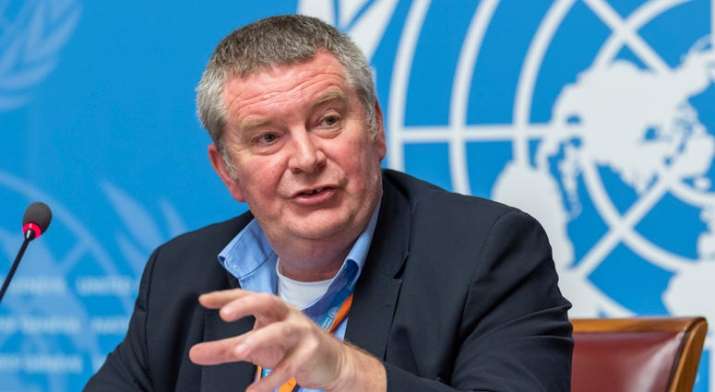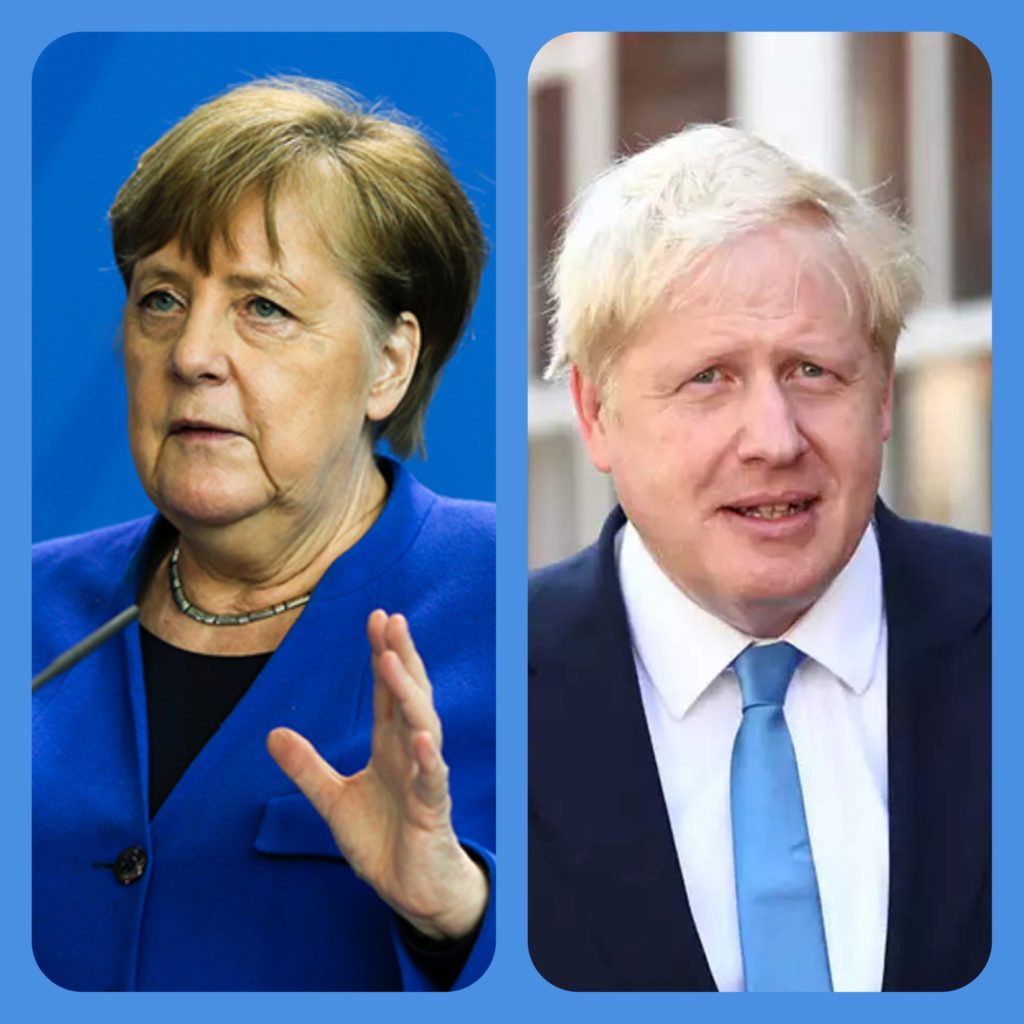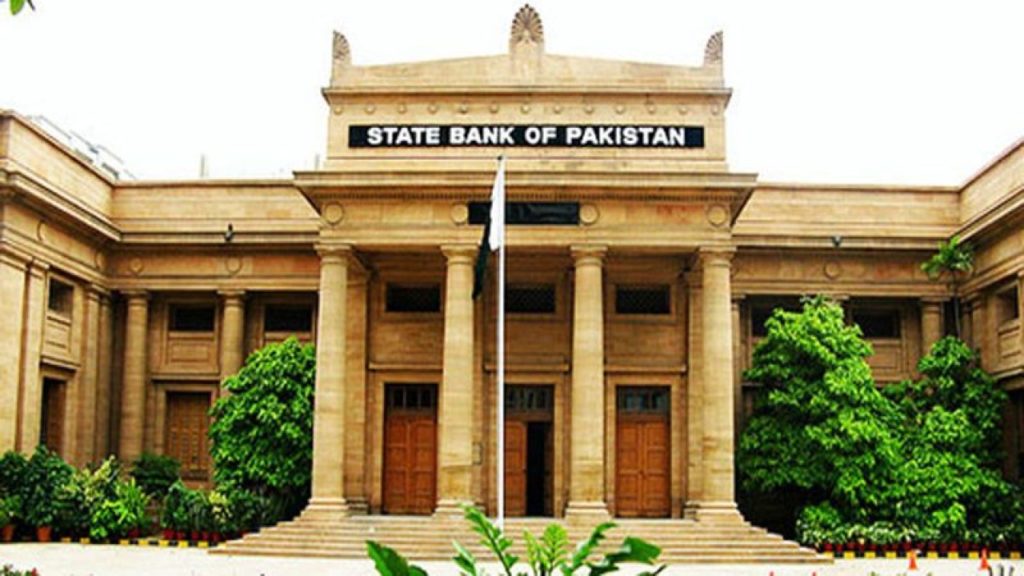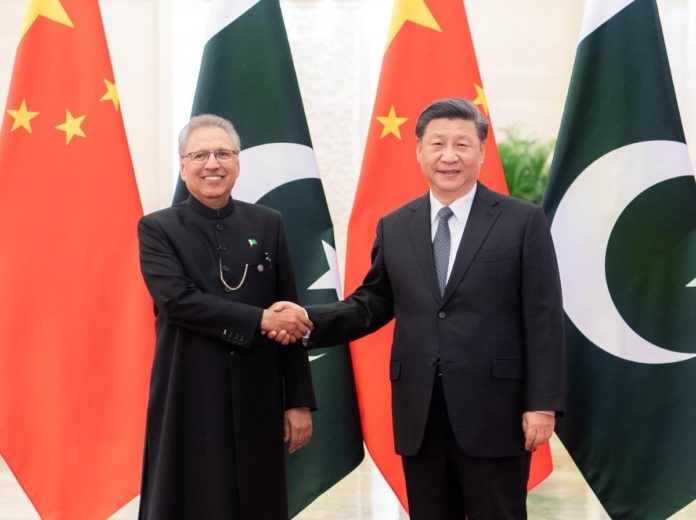While COVID 19 has completed its whirlwind trip around the globe, most of our national level leaderships are only half awake, scoring poor on comprehension and action. A popular term COVIDIOT refers to the leaders having idiotic awareness about the calamity and there is no shortage of such pygmies. International institutions like the IMF are also led by COVIDIOTs, instead of writing off/ re-scheduling earlier loans and offering fresh loans, IMF officials are suggesting countries to devalue national currencies to fight COVID 19. President Donald Trump is struggling against the concept of preventive lock down and thinks that the crisis would be over by Easter. He has imposed fresh sanctions on Iran and is feeling itchy about attacking the Islamic Republic. Moreover, he has effectively blocked the ways of US-China cooperation through his useless pursuit of making the world call COVID-19 as ‘Chinese Virus’. Most of the national level leadership is focused on 3-4 week planning while the technical experts view that Mankind is in for a long haul. Pakistan has, after initial reluctance, embarked upon a preventive campaign through partial lockdown. India has implemented a three week long lock down.
According to Reuters, Mike Ryan, Executive Director World Health Organization (WHO) stated on March 22 that countries can’t simply lock down their societies to defeat coronavirus, adding that there needs to be public health measures to avoid a resurgence of the virus later on. “What we really need to focus on is finding those who are sick, those who have the virus, and isolate them, find their contacts and isolate them,” Mike Ryan said in an interview on the BBC’s Andrew Marr Show. “The danger right now with the lockdowns. if we don’t put in place strong public health measures now, when those movement restrictions and lockdowns are lifted, the danger is the disease will jump back up.” Indeed a realistic assessment.
As of now, South Korea and China present at least partial success stories with regard to countering COVAD 19 within a short time. South Korean model has put forth four lessons: Intervene Fast; Test Early; Contact Tracing; and, Enlist the Public. China has already begun an outreach programme to help other countries. After the initial missteps, the Wuhan health administration took a drastic measure to contain the spread of the virus to other parts of China and the world. Doctors and nurses worked tirelessly to attend to patients. Many of them lost their own lives but they prevented a larger number of deaths. The world should be thankful to those Wuhan medics who taught the world how to deal with this pandemic as many countries are benefiting from the experience of Wuhan healthcare professionals. China on March 19, for the first time since the outbreak began, reported no new domestic case of coronavirus.

From the outset, the WHO took a lead role in informing people around the world. The WHO concluded that COVID-19 virus first appeared in the city of Wuhan, the capital of Hubei province in China. The WHO’s investigative report in February concluded that “early cases identified in Wuhan are believed to have acquired infection from a zoonotic [animal] source as many reported visiting or working in the Huanan Wholesale Seafood Market.” China, Iran and Russia are of the view that virus originated via a leak from the US laboratories; some countries view it as a deliberate biological attack by the US.
Since the outbreak of COVID 19, daily briefings by WHO have helped kill the false and fake news as well as contained the spread of rumours. The tone and tenor of these press briefings are neither alarming nor laid back. They focus on facts and inform member states about the possible steps they have to take to protect their citizens. WHO was the early warner that governments should not brush it aside and take proactive steps to be prepared for it. Those countries that did not pay heed to their advice have paid a heavy price in the spread of infections and loss of life. The usefulness of WHO has made it clear that a world coordinating body can help in fighting a pandemic.
Enhancement of sanctions on Iran has brought forth an inhuman façade of President Trump which is not representative of the popular American mode. China and Russia have already announced their support for easing of these sanctions. Presidential candidate Bernie Sanders announced that he supports the lifting of sanctions on Iran. Pakistan has taken the diplomatic initiative to contact European, Asian and other countries to seek support for lifting sanctions on Iran.
President Vladimir Putin spoke to Italian Prime Minister Giuseppe Conte on March 21 and offered his support and help in the form of mobile disinfection vehicles and specialists to help the worst hit Italian regions. Russia pledged eight mobile brigades of military medics, special disinfection vehicles, and other medical equipment to Italy. The Russian military has started sending medical help to Italy since March 22. Italy recorded a jump in deaths from coronavirus of almost 800 on March 21, taking the toll in the world’s hardest-hit country to almost 5,000.

According to Washington Post, intelligence agencies depicted the nature and global spread of the coronavirus when it began spreading from Wuhan. However, the US president wasn’t interested enough. “Donald Trump may not have been expecting this, but a lot of other people in the government were they just couldn’t get him to do anything about it,” a US official familiar with the intelligence agencies reports spoke to the Post. “The system was blinking red.” White House Spokesperson Hogan Gidley rejected the news:President Trump’s criticism of China to deal with it is unjustified and does not help the world community, saying that Trump was taking “historic, aggressive measures to protect the health, wealth and safety of American people”.
In Pakistan, the federal government has already announced partial lock down, coupled with over Rupees one trillion package for the under privileged segments of society. It has also closed borders with Iran and can announce the same for Afghanistan, India, and China. Lock down should be provincial and district governments’ domain and these lockdowns should focus on areas where the virus has already infected people as well as densely populated cities where the propensity to spread is much higher. Citizens should voluntarily restrict their movements. Many people can work from home. Wealthy people should provide financial support to the daily wagers, as they do not face hardship while staying home during this time of crisis. We all can fight this pandemic by being mindful of others around us. There are enough resources to share and prevent this deadly virus to kill the human spirit to survive and thrive.
On March 17 Pakistan and China underlined that the coronavirus was a common challenge for the entire humanity and called upon all countries to “unite and cooperate” to overcome this challenge together. A joint statement issued at the conclusion of two days visit of President Arif Alvi to Beijing, to convey support and solidarity of Pakistan to the government and the people of China in the efforts to contain the spread of novel coronavirus COVID-19. The joint statement said that China had made major progress in control of coronavirus and would win this “people’s war” against it, adding that both sides underlined that COVID-19 “was a common challenge for the humanity and all countries should unite to overcome this challenge together”.
President Xi praised Alvi for his visit, saying his presence in China was “expression of a firm support to us”. Alvi said that China had shown to the world its ability to handle the challenge and had set an example for other countries, which were now facing the coronavirus outbreak. “Pakistan stands shoulder to shoulder with China during this challenging time,” he added. Premier Li thanked Pakistan for the all-out support to China during testing times. “Not only we need to enhance our cooperation to jointly fight challenges but we must also work to demonstrate our firm commitment for a multifaceted cooperation with the international community,” he added. China and Pakistan have had far-reaching discussions on cooperation in the health sector, and one outcome of the president’s recent visit to China is that in the next couple of days, communicable disease experts, clinicians and epidemiologists based in China will be guiding our health professionals on management of Corona Virus through video conferencing. Chinese cooperation means much as the country has successfully fought the virus and its strategy is being praised the world over, as according to latest information there are no fresh cases of virus in Wuhan, which was considered to be epicenter of the disease. The decision to limit visits to the OPDs of the hospitals and medical facilities is also timely as it would help minimize contact and also help spare medical resources for Corona Virus patients. Safety and protection of doctors and paramedical staff should also be a priority and it is imperative that they get necessary protective items and equipment. Doctors have been complaining about shortage of such equipment; these should be addressed on an urgent basis. It is also important that each and every member of the society should contribute his/her share to the anti-virus campaign. A difference can be made by changing our attitude and opting for social distancing as is being done in other affected countries.
It is interesting how South Korea flattened the curve. According to New York Times, South Korea reported its lowest number of cases March 22. It was a remarkable turnaround from the several thousand cases that exploded there in late February and early March. South Korea’s strategy was not the full lockdown that China employed, or even the widespread restrictions that the US and Europe have implemented. Instead, it focused on swift, widespread testing and contact tracing. Soon after reporting the first occurrence, South Korea moved rapidly by opening 600 testing centers and keeping health workers safe by minimizing contact. Once someone tested positive, officials meticulously traced their movements using security camera footage, credit card records, even GPS data from their cars and cell phones. South Korean officials remain cautious that their successes are tentative, and a risk of resurgence remains, particularly as epidemics continue raging beyond the country’s borders.
After a lot of delay, Prime Minister of Britain Boris Johnson placed the country under a lockdown, banning people from leaving their homes for nonessential activities. He said the police would enforce the new rules. India has extended its lockdown to the general population, grounding all domestic flights. Its cases remained relatively low, and the government kept struggling to get ahead of the curve. Chancellor Angela Merkel of Germany was tested for the virus after she learned that a doctor she saw was infected. Her first test came back negative, though she will keep taking tests and remain in isolation.

President Donald Trump doubled down on blaming China for the coronavirus pandemic. “It could have been stopped right where it came from, China,” Trump said at a White House news conference. Trump has repeatedly called the coronavirus the “Chinese virus,” and has been criticized for doing so both by Chinese officials and by others, including former Vice President Joe Biden. Trump has said that term is “not racist at all.” President Donald Trump emphatically blamed China for the coronavirus pandemic on March 19, and again made a point of using the term “Chinese virus.” “The world is paying a very big price for that they did,” Trump said, referring to his claim that Chinese officials did not fully share information sooner about the coronavirus outbreak after it began in China. “It could have been stopped right where it came from, China,” Trump said at a White House news conference. “It would have been much better if we had known about this a number of months earlier,” the president said. Two months ago, Trump had praised China’s response to the coronavirus, saying that country “has been working very hard” to contain the virus, and writing in a tweet that, “the United States greatly appreciates their efforts and transparency.” But in March, Trump repeatedly called the coronavirus the “Chinese virus”.
Trump’s habit of saying “Chinese virus” has drawn strong criticism from Chinese officials and from a number of US politicians, including former Vice President Joe Biden, the front-runner for the Democratic presidential nomination. When asked why he continued using the term. “Because it comes from China,” Trump said,“ Saying it was “not racist at all.” Biden’s campaign responded to Trump’s press conference statement saying, “Donald Trump is attempting, yet again, to hide his record of failure on combating the coronavirus, using today’s press briefing to attempt to erase his months of ignoring medical experts who were sounding the alarm.” “The reality is, he did know about it and experts spent months trying to prompt Trump into action as he downplayed the growing threat of the virus and praised the Chinese government’s bungled early response at a time when Vice President Biden warned him not to take their word about the disease,” the campaign said.
Chinese Ambassador to South Africa Lin Songtian tweeted on March 21 that “more evidence suggests that the virus was not originated at the seafood market in Wuhan at all, not to mention the so called ‘made in China.” He was quote-tweeting a missive from China’s Foreign Ministry spokesman Zhao Lijian, who shared an article saying: “This article is very much important to each and every one of us. Please read and retweet it. COVID-19: Further Evidence that the Virus Originated in the US.”
Zhao’s tweet drew a stern rebuke from the State Department. Assistant Secretary of State David Stilwell summoned the Chinese Ambassador Cui Tiankai after Zhao tweeted comments made by Centers for Disease Control and Prevention (CDC) Director Robert Redfield as evidence to support a conspiracy theory that COVID-19 is part of an American plot. Zhao tweeted that “CDC was caught on the spot. When did patient zero begin in US. How many people are infected? What are the names of the hospitals? It might be US army who brought the epidemic to Wuhan. Be transparent! Make public your data! US owe us an explanation!” Stilwell gave a “stern representation” of the facts to Cui, a State Department official told the Washington Examiner. Zhao’s comments were a part of a Chinese strategy to deflect from “starting a global pandemic and not telling the world,” the US official said.
The State Department ramped up its condemnations further during a call between Secretary of State Mike Pompeo and the director of the Office of Foreign Affairs of the Chinese Communist Party, Yang Jiechi. “Secretary Pompeo conveyed strong US objections to PRC efforts to shift blame for COVID-19 to the United States,” State Department spokeswoman Morgan Ortagus said.
The statement at Chinese embassy’s website denies that COVID-19 “originated from China” and repeats reports that “it was caused by the leakage of the US biological laboratory” or “this is a biological war launched by the United States against China.” Foreign Ministry spokeswoman Hua Chunying tweeted last week that the coronavirus didn’t originate in China and implied the outbreak began in the US. Pompeo admonished the Chinese government for its denials about the coronavirus’s origins, insisting on calling the illness the “Wuhan coronavirus.”
Earlier in February, the commander of Iran’s Revolutionary Guard Corps, Major General Hossein Salami, had claimed that the corona virus “may be the product of America’s biological invasion,” according to the Iranian Students’ News Agency and Iranian International. Last week, Ayatollah Ali Khamenei suggested the coronavirus was a “biological attack.”
The head of the State Department’s Global Engagement Center told Congress in March that Russia has mobilized “an entire ecosystem” of disinformation to prey on global fears accompanying the outbreak and to blame the US.
Germany’s foreign minister said on March 16 that the rights to coronavirus vaccine research were not for sale, following reports that Donald Trump wanted the US to buy exclusive access to a potential vaccine developed by a German biotech firm. “German researchers play a leading role in drug and vaccine development and we cannot allow others to seek exclusive results,” Heiko Maas said. Trump had offered “a billion dollars” to secure research into a vaccine by German biotech firm CureVac “only for the United States.” “Germany is not for sale,” economy minister Peter Altmaier said. “International cooperation is important now, not national self-interest,” said Erwin Rueddel, a conservative lawmaker on the German parliament’s health committee. A US official told AFP that the report was “wildly overplayed”. “The US government has spoken with many (more than 25) companies that claim they can help with a vaccine. Most of these companies already received seed funding from US investors.” The official also denied that the US was seeking to keep any potential vaccine for itself. “We will continue to talk to any company that claims to be able to help. And any solution found would be shared with the world.” Economy minister Altmaier welcomed the statement, saying it was a “fantastic decision.” “If we are successful in developing an effective vaccine, then it should help and protect people across the world,” said Dietmar Hopp, head of principal investor dievini Hopp Biotech Holding, in a statement.
And in South Asia, when the worst was over for China having observer status in South Asia Association for Regional Cooperation (SAARC) Prime Minster Narendra Modi woke up to fight Corona via SAARC, with an intent to divert attention from confirmed 19 COVID cases in Srinagar. And with a paltry US$ 10 million fund he was seen showcasing his ‘global’ stature. For comparison, Pakistan has made an initial allocation of US$ 600 million for its national plan. President Donald Trump has allocated US$ 46 billion for handling the disease within the US. Direct and indirect Global costs to combat COVID-19 could soon touch a trillions dollar mark. Modi has no clue about the gravity of the crisis. “As developing countries, all of us have significant challenges in terms of access to healthcare facilities,” said Modi in his opening remarks at the video conference. He also proposed the creation of a common research platform to carry out research to control epidemic diseases in the region.

India West reported: Panic gripped Srinagar city on March 19 with residents indulging in heavy panic buying of essentials of life after a woman tested positive for COVID-19. “People thronged markets for edible oils, pulses, tea, spices, medicines, hand-washes and sanitizers. Shopkeepers were battling with the rush of buyers as their shelves started getting emptied very quickly.” “Long queues of motorists lined outside various petrol filling stations in Srinagar and other parts of the Valley indicate that petroleum products would also run into short supply.”
During the SAARC conference, the Pakistani side was represented by Zafar Mirza, State Minister for Health, who in his address said that it was imperative that the lockdown in Kashmir be lifted in view of the health emergency after the coronavirus outbreak. “It is a matter of concern that COVID-19 has been reported from Jammu and Kashmir. In view of the health emergency, it is imperative that all lockdown in the territory must be lifted immediately,” Mirza said at the conference. “Opening up communications and movement will facilitate the dissemination of information, allow distribution of medical supplies, and enable containment and relief efforts to proceed unimpeded,” he added. Restrictions have been imposed in Jammu and Kashmir following the Indian government’s move to revoke Article 370 of the Constitution, on August 05, that accorded special status to the region. Ever since, the medical and logistical capacities of Indian occupied Kashmir have shrunk exponentially.
The SAARC meeting on COVID confirmed that India isn’t anything beyond a typical third world developing country with a leadership of parochial mind-set, India is nowhere close to China. Conference was more of a grandstanding occasion minus the networking. And comically with his showmanship, Modi thought India had assumed leadership of the South Asian charge against COVID19. Given how irrelevant the SAARC has become of late, the video conference served more as a diplomatic bolster rather than an actual organisational meeting. Ample negatives were on show. India’s assistance package hasn’t exactly been commensurate with its big power claims. It didn’t look very good when one of the world’s major pharmaceutical hubs did not offer significant assistance in the form of drugs, masks and ventilators. While India has banned the export of critical drugs, authorising a limited amount to Israel, China is supplying masks and medicines to both Iran and Italy, even though it is the origin point of this disease and the worst affected in absolute numbers. And China is not seen showcasing its service to Mankind in a cheap way, through SCO or any other forum.
All member states agreed that a coordinated and joint effort was needed to tackle the pandemic. Pakistan rightly wanted the SAARC Secretariat, based in Kathmandu, Nepal, to lead the fight instead of India. Mirza said the COVID19 pandemic is a global health emergency, the likes of which have not been witnessed in the past century. “At the same time, while it has been characterized as global pandemic, it is deemed ‘controllable’ as well,” he added. “Pakistan shares the common concern over the potential of COVID 19 affecting South Asia.” Mirza also said the WHO’s four-pronged advice offers a reasonable way forward, namely: (a) preparation and readiness; (b) detection, prevention and treatment; (C) reduction and suppression; and (d) innovation and improvement.
Pakistan is following a comprehensive national action plan to counter the menace and has been involved in containment efforts right from the outset of the outbreak. Prime Minister Imran Khan is personally overseeing these efforts, highlighting the steps Pakistan took to control the pandemic. Four pillars of response strategy include: (A) Governance and Finance; (B) Prevention; (C) Mitigation; and (D) Communication. Dr. Mirza said that “We have been alert to the dangers, and have put in place appropriate protocols for the safety and health of our people. We have been matching our measures to real-time threat assessments. While, we have stressed the need for caution, we have strongly advised against panic.” “Resultantly, Pakistan has managed so far to contain, an achievement the WHO has recognized and commended.” he said.
Modi’s initiative came as a surprise to many given the fact that New Delhi, since Modi’s rule, has tried to side-line the grouping as part of its strategy to isolate Islamabad and have a variant of SAARC minus Pakistan. It is because of this reason that the SAARC summit scheduled in November 2016 in Islamabad could not take place. Pakistan accepted the offer acknowledging that the threat of COVID19 required coordinated efforts at regional and global levels. And by lower echelon representation Pakistan maintained a fine balance in its approach.
South Asia needs to prepare for the eventuality of the exponential spread of the virus, if the outbreak gets past the current stage and records community level spread. The number of hospital beds as well as other medical equipment like ventilators would become insufficient in such a scenario. Making an accurate assessment of such requirements well in advance would help in mitigating the pressure. The next few weeks will be crucial for this part of the world, home to almost a quarter of the world’s population. Like many other areas, there is much scope for cooperation among SAARC countries for mitigating the lacunae in medical infrastructure. The high-level engagement could have been a refreshing break from the dormancy that had come to characterize SAARC over the past few years provided Modi had not used the occasion to put on a show of pseudo Indian ascendency.
In Pakistan, the campaign against COVID-19 got a major boost when the armed forces declared that they are fully prepared and activated to assist civil institutions to combat Corona Virus across the country. Addressing media-less briefing along with Special Assistant to PM on Health Dr. Zafar Mirza and Special Assistant to PM on Information and Broadcasting Dr. Firdous Ashiq Awan, Director General Inter Services Public Relations (ISPR) Major General Babar Iftikhar said the armed forces are deploying all resources to help the public together with civil institutions and announced that measures are being taken to make the armed forces’ medical facilities available for an “extreme emergency” situation. People expect that this should have been done straight away. A medical action plan has also been devised by the armed forces. Pakistan Army scientists are researching and manufacturing personal protection equipment, face masks, and hand sanitizers and this would surely augment efforts of other civil institutions and research organizations in this regard. Rangers’ personnel are assisting civil administration with the security and management of various quarantine camps set up across the country. This would help improve situation of camps in the backdrop of some reports of lack of proper facilities and haphazard arrangements. According to AFP, hundreds of Pakistanis who returned home from a pilgrimage to Iran were stuck in filthy Corona Virus quarantine camps with limited medical care, and feared the squalid conditions were helping spread the disease. One can imagine the situation from claims of former and current residents of Taftan camp on the border with Iran who said the facility lacked running water or flushable toilets, with pilgrims only able to wash every few days.
The Federal and Provincial Governments are already engaged in a massive exercise to check spread of the disease and provide best possible medical treatment to the affected people. However, the nature and magnitude of the threat demands a well-coordinated strategy by all institutions to minimize the losses that are entering into unbearable limit. Armed forces have all along been instrumental in joining national efforts on the occasion of every disaster and emergent situation and contributed significantly in mitigating sufferings of the affected people and their rehabilitation. Their participation in the fight against Corona Virus is important as armed forces are not just organized and have the necessary disciplined manpower to carry out the responsibility but also have best medical institutions and facilities in the country.

Though the State Bank of Pakistan has taken some measures to facilitate the industry and exporters but these are not enough especially when the Asian Development Bank has estimated that the country may face losses worth Rs.1.3 trillion. These losses are going to be incurred on account of drop in the GDP growth because of reduction in services sector, including airline business and others, FBR’s revenue loss, massive decline in imports, exports, reduction in remittances, disruption in food supplies and other fronts. Similarly, the Ministry of Food Security has asserted that the country will not face any food shortage as it has sufficient stocks of essential items to meet the immediate needs but plans must be in place to cope with the situation if the crisis persists for a longer duration. There are already reports of shortage of wheat flour even in areas like Wah which is in close proximity to Islamabad/ Rawalpindi. In view of global nature of the virus, home remittances by Overseas Pakistanis might also see a drop and an aggressive strategy is required to maintain the flow.
Washington Post commented editorially on March 24: “The Covid-19 [inter alia] may also mark a decline in US leadership in the world. The cause is straightforward: President Trump has abdicated the role played by US presidents in every previous global crisis of the past century, which is to step forward to offer remedies, support other nations and coordinate multilateral responses. Most recently, presidents George W. Bush and Barack Obama led international efforts to stem the 2008 financial crisis; they also initiated robust U.S. responses to the AIDS and Ebola epidemics”.
Melina Delkic reported for New York Times on March 18 that, “As coronavirus cases dwindle in China, after its sprawling effort to get a seemingly unstoppable outbreak under control, the country is turning its attention to others around the world giving Beijing a chance to reposition itself as the global leader in a time of crisis”. China has dispatched medical aid and donated money to combat the disease, “Leaders like Serbia’s [and Pakistan’s] presidents are looking to China”. “China has stepped into a role traditionally reserved for the US. [China is] showcasing its model after failures in European and American responses; it’s indeed a remarkable turn”.
Mankind is in for a long haul. And the test of leadership is phenomenally tough. Hopefully, as the leaders learn the ropes, leadership gaps at national and global levels will be filled in couple of weeks.





